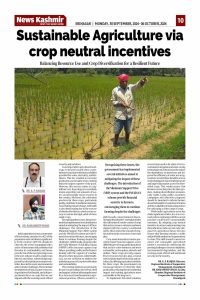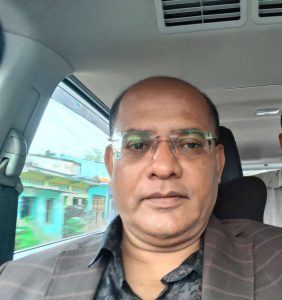How the Landscape of Overseas Education is Changing in India
The current trends in India’s education financing sector are challenging the estimated projections for the future of the industry. But is there a silver lining?
India’s overseas education landscape has faced significant changes over the past year. In 2023, more than 1.2 million students travelled abroad for quality education [1]. This number was expected to reach 1.5 to 2 million by 2025 [2]. However, recent trends and data indicate a major shift in these projections.
Decline in Interest in Abroad Education?
GyanDhan conducted an analysis between March 2024 and May 2024 to understand the current trends. The report estimated a significant 22% drop in the number of students looking for abroad education loans as compared to the same period last year. This decrease in interest was even more pronounced in some states. Telangana witnessed a 30% drop and Gujarat, a 35% drop. Here is an overview of some other states:
Overall (India) -21.92%
Punjab & Chandigarh -28.41%
Maharashtra -12.79%
Kerala -12.39%
What is Causing This Trend?
Many factors have influenced this declining trend. In the last three years, Indian students who travelled to the US have been facing challenges in bagging jobs. One such student, Ankit Kumar, an MS in Supply Chain Management graduate from the University of Texas at Dallas, pointed out, “There’s a dark reality to studying in the US. Finding a job is not easy and not everyone gets lucky enough to get a work visa.” He further added, “Working in non-tech fields, especially in supply chain, has become tricky for immigrants to be able to survive.”
Canada’s imposition of caps on international student admission [6] [7], Australia’s introduction of stricter student visa evaluations along with doubling of the fees [3] and the UK’s initial plan to consider restricting student entries [4] [5] have all been motivators of this decline. Together, these have made students and their families more careful about investing in an overseas education.
Future Outlook: Will It Get Better?
The critical question is whether this trend will improve in the coming years. GyanDhan’s analysis further examined aspirants’ preparation for exams and their interest in universities. Here are the findings for India as a whole:
Interest in GRE -13%
Interest in IELTS -24%
Interest in TOEFL -16%
These declines are particularly significant in states like Telangana with a drop of 30% in interest in GRE, Gujarat with a 43% drop in interest in TOEFL, and Punjab, with a 57.36% drop in interest in IELTS. These numbers indicate that the upcoming intakes, Spring 2025 and Fall 2025, may continue to experience similar trends until substantial changes in policies come into the picture.
The Other Side of the Picture
The overseas education industry in India may have taken a hit, but this is just one side of the story. International policymakers are soon to meet the results of economic forces. Over time, the exponential rise in the number of students travelling abroad has become an income source that many universities depend on [8]. A recent report highlighted many university staff layoffs and course suspensions in the UK, Canada and Australia [9]. This resulted from restrictive government policies on international students, “reducing an important income stream.”
In Australia, the overseas student caps have agitated universities. In a submission to the federal Department of Education, the University of Sydney says that no attempt has been made to assess the impact of “arbitrary enrolment limits” on a university funding model that is “heavily reliant” on international students’ fees [10]. Almost 44% of their income last year was from foreign students. They’ve requested the department to “consider changes of this magnitude extremely carefully”.
Ankit Mehra, CEO of GyanDhan, emphasises the implications of the restrictive measures on international students, “These measures not only affect universities but also hinder the potential contributions of talented graduates to their country’s economy.”
This was also recently highlighted by Donald Trump in his landmark proposal concerning international students. Preparing for the November presidential elections in the USA, he proposed ‘automatic green cards’ for Indians graduating from the US. He added, after their graduation, the brilliant students return to their country and “become billionaires”. [11]
Most of the recent policy changes and proposals are driven by pandering to the voter base given the impending elections in these geographies. Ankit Mehra further states, ”The economic fallout of alienating the international student segment will be too significant for these countries to ignore. We can expect a return to normalcy once the election cycles conclude and the hype settles.“
The Silver Lining
Despite the current challenges, there are many positive aspects one must consider. The reduction in interest will likely weed out less scrupulous parties who do not prioritise students’ best interests. This market correction could lead to a more transparent and student-focused industry.
Another silver lining for the overseas education industry is the increasing affluence of the upwardly mobile middle class. With the desire for superior educational opportunities, global exposure, and better career opportunities, more parents are sending their children abroad for undergraduate studies.
This surge can be seen in the GyanDhan analysis as well. There has been a notable 20% increase in interest for the ACT and SAT exams in India, both prerequisites for undergrad courses abroad.
Exam-wise searches (Mar-May’23 versus Mar-May’24) % Change across India % Change across Telangana, Tamil Nadu, Karnataka & Andhra Pradesh % Change across Punjab & Chandigarh
ACT 19.92% 8.84% 53.28%
SAT -0.31% 2.27% 1.17%
GRE -13.22% -30.36% -18.38%
GMAT -6.10% -6.99% 2.80%
IELTS -23.84% -20.02% -57.36%
TOEFL -15.60% -1.83% -24.29%
Additionally, the analysis highlighted a growing interest in countries apart from the traditional destinations, the USA, the UK, Canada and Australia. Universities in Ireland, Germany and Spain, among others, are witnessing a surge in interest among Indian students. For instance, abroad education aspirants in Punjab have shown a 99% increase in interest in German universities. Similarly, there is almost a 100% increase in interest in Irish universities among aspirants in Gujarat, Telangana, Tamil Nadu, Andhra Pradesh, and Karnataka.
Conclusion
The overseas education sector in India experienced significant transformations over the past three years– a surge in students travelling abroad post COVID aided by the upwardly mobile middle class driving an increasing demand for superior educational opportunities and global exposure. There have also been numerous changes in immigrant rules.
While the current trends pose challenges, the policy changes intended to address unscrupulous practices should ultimately result in a more sustainable growth for the overall industry. ###
Sources
1. Business Standard Article, 30 May 2024: Where are Indian students headed, how much do they spend abroad?
2. India Today, 8 Dec 2023: By 2025, Indian students studying abroad are expected to spend up to $70 billion
3. Business Standard, 1 Jul 2024: Australia hikes student visa fee by 125%: How Indians will be affected
4. The Economic Times, 25 May 2024: UK tightens student visa rules but keeps Indian students’ favourite graduate route intact for now
5. Hindustan Times, 24 May 2024: What UK’s new visa rules mean for Indian students and migrants, as per experts
6. Frontline, 23 Jan 2024: Canada’s two-year cap on international student visas likely to impact Indians
7. India Today, 26 Jun 2024: Number of Indian students seeking Canada Visa drop due to restrictions
8. Financial Review, 3 Jul 2024: Slashing Foreign student numbers would be economic self-harm
9. The Pie Network, 2 May 2024: Higher ed policies drive layoffs and cuts in the UK, Australia and Canada
10. Times Higher Education, 19 Jun 2024: Australian overseas student caps ‘jeopardise housing projects’
11. TOI, 21 Jun 2024: Donald Trump promises US green cards for foreign graduates
More to Read
1. Shiksha, 20 Jun 2024: India to be the largest source of International students for the US by 2034
2. Economic Times, 5 Feb 2024: Higher education ‘enrolment cliff’ likely to open doors for more Indian students
3. Financial Express, 13 May 2024: Australia announces changes in temporary graduate visa rules
4. The Hindu, 29 Feb 2024: Growing Mismatch between Indians going abroad and foreigners coming to India for higher studies
5. Deccan Chronicle, 30 Jun 2024: Indian students in US wary after rise in violent attacks
6. The Globe and Mail, 21 Jun 2024: The right question to ask about international students and housing

 tral incentive structures comes into play.
tral incentive structures comes into play.


